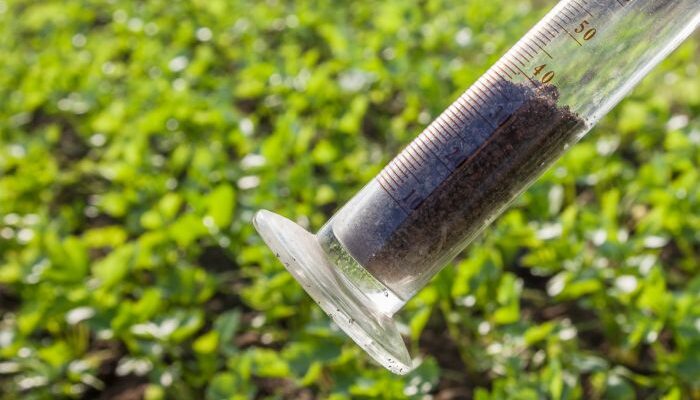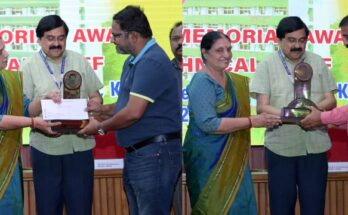A robust seed system for agriculture is of fundamental importance to the health of the nation. Food and nutrition security continues to need attention in India, with a burgeoning population of approximately 1.4 billion to feed. Multiple biotic and abiotic stresses on our crops and natural resources are further exacerbated by the impact of climate change, amongst other factors. The food security situation in South Asia poses a great risk to the stability of the whole region, with recent crises in Sri Lanka, Bangladesh, and the ongoing crisis in Pakistan serving as concrete examples of the need for increasing investment in research and development to strengthen food security in the region, Policy Advocacy Research Centre (PARC) said in its recent study.
Multilateral organisations have been discussing the potential threats from a national security perspective, wherein they seek to help mitigate them through collaborative mechanisms. Yet, this calls to question the notion of national and scientific sovereignty in food and agriculture, especially with seeds and planting material.
In this context, over multiple engagements undertaken through the Policy Advocacy Research Centre (PARC), it was understood that work needs to begin with increased research and focused development of high-quality seeds. Crop improvement research is driven in some crops by public research but the importance of the private sector in seed research has grown multifold in the last two decades. Hence, the need to incentivise the private sector to invest more in this space has never been greater. Globally, the average spend by private sector seed companies on research and development (R&D) ranged between 10-12 per cent of revenue, whereas in India it amounted to approximately 3 per cent. Given India’s ambitions of becoming a global super-power and agriculture being a fundamental element of the global economy, incentivising R&D with a thrust given to the Indian private seed sector, could yield socio-economic multiplier effects, while mitigating emerging risks to the food chain.
You may also like to read: ICAR, World Bank to host conference on blended learning ecosystem in agriculture this month
Subsidies supporting private sector R&D for seeds are currently not viable, given the strains of national finances. Furthermore, multiple factors have laid pressure on the exchequer to control food price inflation with productivity and planning often at stake due to the factors mentioned earlier. Poor yields and failing crops due to disease, pests or climate change are an indicator of the challenges that need to be addressed on a war footing. Through primary research undertaken by PARC, the study shows that incentivisation mechanisms through increasing tax rebates for expenses incurred by seed companies on R&D expenses would encourage enterprises to commit more resources.
Furthermore, when engaging with MSME enterprises, which focus more on undertaking R&D activities of indigenous and region-specific seed crops, most respondents opined that their growth and survival depended on differentiation, achievable only through more R&D. Between 2016 to 2020, tax rebates on R&D for seeds (biotechnology) fell from 200 per cent to 150 per cent and currently stands at 100 per cent. Research in seeds often carries tremendous risk as the outcomes desired are not always achieved, but should not be discouraged. Furthermore, it is a lengthy and time-consuming process which usually takes up to seven years wherein the testing protocols have to be devised across the diverse agro-climatic zones prevalent across India, the study recommends.
Given the thrust needed to encourage investments in R&D and the current situation when subsidised research is not financially viable, the PARC study suggests that reinstatement of a 200 per cent tax rebate on R&D expenses incurred by seed companies would ensure required cash flows to increase their investments in R&D.
You may also like to read: ICRISAT, Plasma Waters join hands to scale up plasma technology to enhance crop yield in drylands
To ensure that the Indian seed sector maintains parity with their global and regional counterparts, most of whom have access to institutionalised foreign investment in R&D coupled with technology transfers, the reinstatement of a 200 per cent tax rebate on R&D for Indian private seed sector companies would offer incentives for further increasing investments. As opined by the Federation of Seed Industry of India (FSII), the Indian seed industry is valued at approximately INR 22,000 crores and registering growth year-on-year, yet this accounts for a dismal 5 per cent share of the global seed market. With the falling share in seed production by the Indian public seed sector from 42.72 per cent in 2017-18 to 35.54 per cent in 2020-21, the private seed sector share increased from 57.28 per cent to 64.46 per cent in the same period.
With multiple submissions on the need to develop seeds during deliberations prior to multiple state agriculture budgets across India during February and March 23 for the fiscal year 2023-24, farmer bodies and other concerned stakeholders have voiced concerns for better quality seeds that help them address their productivity, the resilience to climate change, amongst other factors. Beyond this, multiple debates and dialogues have been emerging with growing fervour amidst stakeholders within the bureaucracy, the political establishment, the agriculture value chain, policymakers and the wider public at large.
Speaking on the study, Vikram Sankaranarayanan- Executive Director, PARC said that “unless we bring strong fiscal incentives for R&D, our study suggests that India’s competitiveness at the global stage would be lagging and Indian private seed companies, some of whom have prominent global operations, would commit more resources should they enjoy targeted incentives for investing in research to develop better seed varieties.”
Furthermore, the lead economist for the PARC study, Banisha Begum Shaikh opined that fiscal incentives supporting R&D would assist the private seed sector in further modernising labs at par with their advanced economy counterparts.
In view of India’s ambitions of being competitive through building self-reliance and resilience coupled with ensuring future food and nutrition security, fiscal incentivisation of R&D through the reinstatement of a 200 per cent tax rebate would be a progressive and affordable measure to undertake. This should be backed by a strong regulatory framework which will govern the processes for gaining access to the rebate in a transparent and auditable manner. It is also worth considering funding large-scale PPP projects between public and private research organisations on crops of national importance like oilseeds and pulses where the historic investments have been low. This two-pronged approach of encouraging private investment in seed research will help the country in this decade and beyond.





